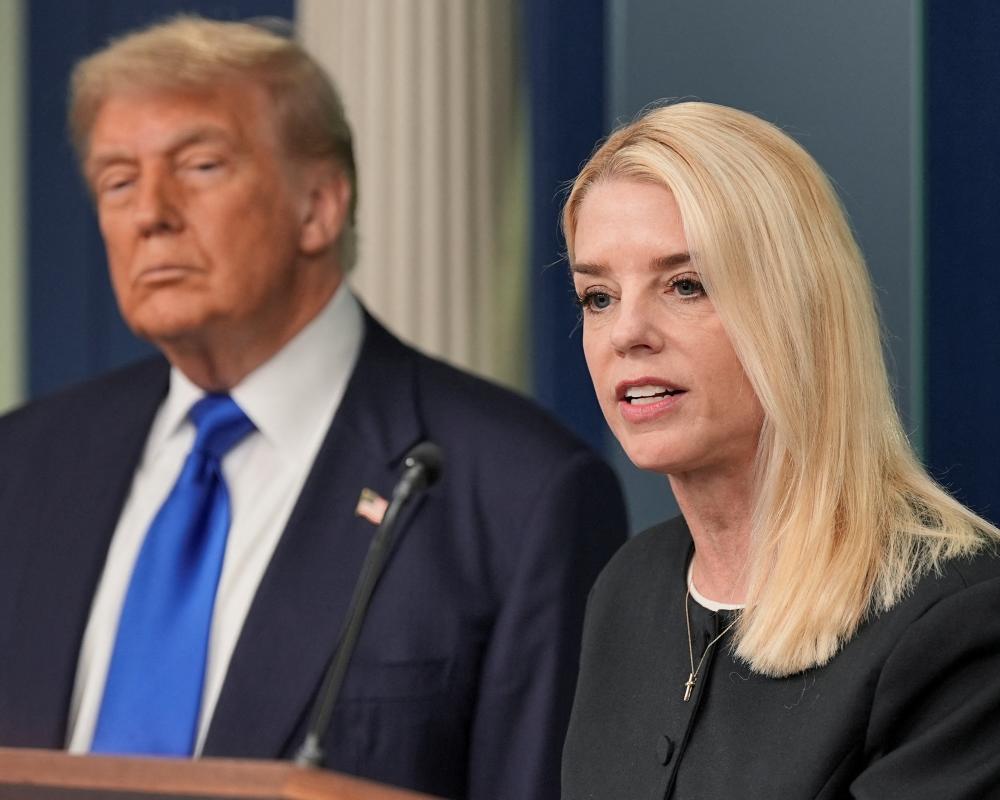The US Department of Justice is seeking sanctions against a lawyer who sought to block the deportation of his client, in another sign the Trump administration is ramping up its efforts to enact mass deportations.
Earlier this year, Joshua Schroeder, a California-based attorney, was able to briefly delay the deportation of his client, a Hmong man from Laos, through several court filings.
The Trump administration filed a sanctions motion against Schroeder, Politico reported last week, and argued that the attorney made “myriad meritless contentions” in his filings and a “pattern of knowing or reckless misrepresentations”. The justice department is seeking “substantial” monetary sanctions.
Schroeder’s attempts to block his client’s removal were ultimately unsuccessful.
The motion by the justice department comes as Donald Trump has pledged to crack down on immigration attorneys and firms engaging in “unscrupulous behavior … that undermine immigration enforcement”.
The president signed a memorandum in March instructing the US attorney general to prioritize sanctions against attorneys and firms that pursue “frivolous, unreasonable, or vexatious” lawsuits against the government.
But advocates and civil rights organizers have warned the policies are meant to hamper the work of immigration lawyers, and fear Trump is weaponizing the justice department against those opposed to his agenda.
Schroeder appears to be the first attorney individually targeted by the administration following the March memo. He told Politico the sanctions motion reminded him of Trump’s orders targeting large law firms associated with people the US president considers enemies, and appeared to be part of a broader strategy.
“They’re able to go all the way down to the very bottom, that’s where I am – no offense to myself … It’s top to bottom. It’s not just this elite struggle,” he told the outlet.
Schroeder is a solo practitioner whose firm focuses on constitutional law, intellectual property and immigration law, and a legal scholar who has previously written about how attorneys can use habeas corpus to get immigrants out of detention.
Schroeder’s client is a Hmong immigrant who came to the US as a child and later served time in prison for attempted murder. He lived in Oklahoma with his wife when he was taken into custody by US immigration customs and enforcement during an April check-in.
The attorney was representing his client pro bono, and in May filed an emergency motion in a Texas court to prevent his removal from the US. Schroeder argued that deporting him to Laos would put him in “direct threat to life and limb” because of the role of the Hmong aiding the US during the Vietnam war.
In his filings, Schroeder highlighted the administration’s use of the Alien Enemies Act in its deportation efforts, and argued the government could use that to “apply to any immigrant or disfavored U.S. citizen”.
While Schroeder was able to temporarily block his client’s removal, he was moved to a facility in Guam and eventually deported in June after another judge dismissed the case, ruling that the government was deporting him not under the AEA but the Immigration Nationality Act.
The Trump administration argued that Schroeder should be sanctioned for his conduct, and that he knowingly made baseless accusations against the government and acted in bad faith, “maintaining positions without bases in fact and law”.
“Having been warned multiple times that his client had a valid removal order, Schroeder nevertheless persisted in delaying the lawful execution of that order,” the government’s filing said, adding that he “refused to give straight answers” regarding the grounds for his claims.
Related: How an 18th-century law enabled internment – and may do so again
“That is not the conduct of a forthright but mistaken advocate. His evasiveness evidences knowledge of his guilt and an unwillingness to accept responsibility for his actions.”
Schroeder told Politico he was working “under very heightened pressure” to prevent his client from being moved outside the US. He does not expect the motion to be successful, but speculated the filing was intended to punish him and could discourage other lawyers from taking on certain cases.
“I think this motion for sanctions is not going to work, but it might do what they want it to do anyway,” he said.
The Department of Justice declined to offer comment outside the filing.

